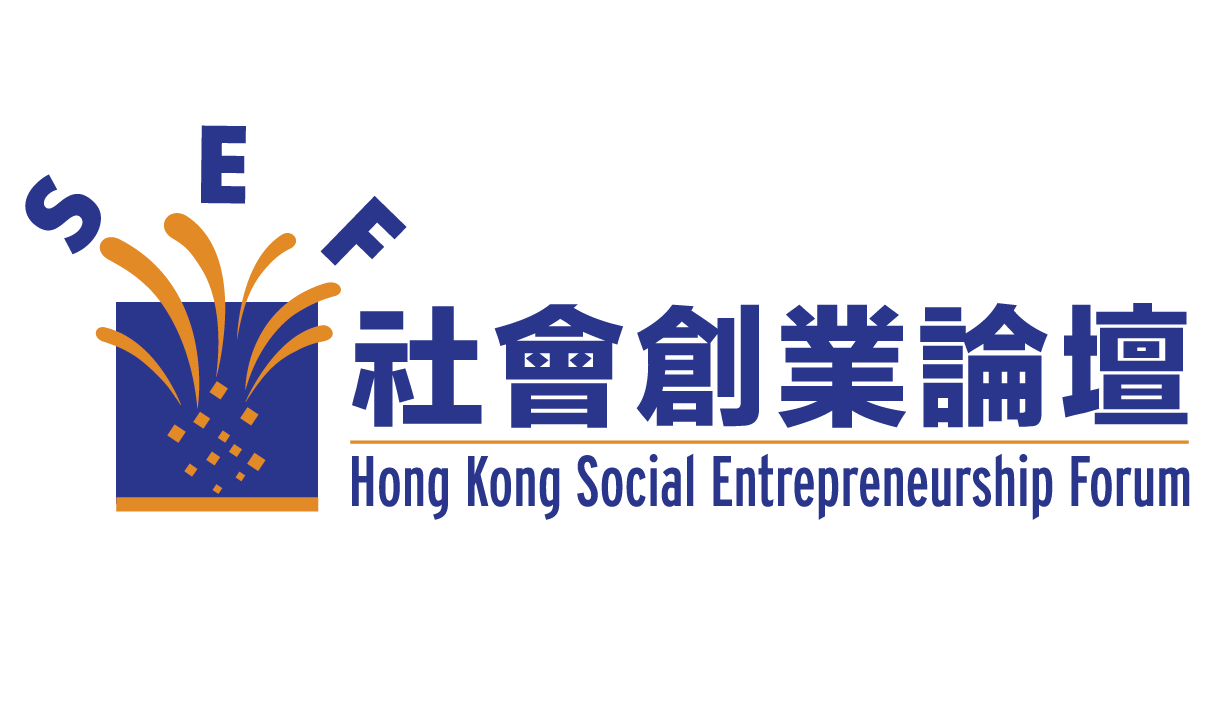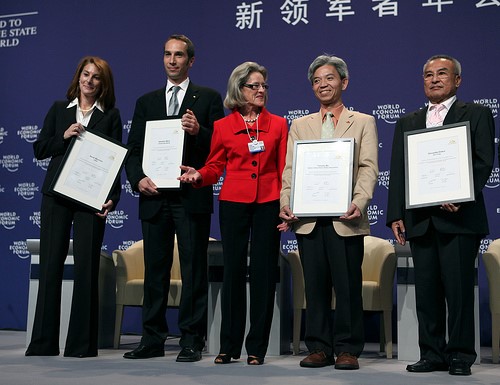Written by Timothy Ma, Executive Director of SCHSA; Edited by Dr KK Tse
Timothy Ma is one of the three winners of the 2009 Social Entrepreneur of the Year Award – Asia, presented by the Schwab Foundation. The Award ceremony was held at the World Economic Forum’s Annual Meeting in Dalian, China, on September 10-12, 2009.

Timothy writes of his experience in Dalian as follows:
The good news is that a Hong Kong social entrepreneur was honored with the Social Entrepreneur of the Year Award presented by the Schwab foundation at the World Economic Forum, in Dalian, China.
The bad news is that no Hong Kong media were there to cover this ground breaking news.
The Schwab Foundation for Social Entrepreneurs was started by Klaus Schwab, Founder of the World Economic Forum, and his wife Hilde. Since its inception in 2000, the Foundation has been identifying the world’s leading social entrepreneurs in over 40 countries around the globe. These social entrepreneurs have been implementing innovative and pragmatic solutions to social problems by tackling the root causes and creating social transformation in their countries.
Selected social entrepreneurs were invited to participate in World Economic Forum events, thus providing unique opportunities for them to connect with business, political and media leaders, who, in turn, would also benefit from interacting with the social entrepreneurs. The Schwab Foundation works with a network of leading companies, foundations and universities that extend pro bono or reduced fee services to the social entrepreneurs selected into the network. Throughout the year, the Foundation sets up opportunities whereby specific individuals and leaders of companies and public sector organizations can come into contact with social entrepreneurs working in areas of relevance to their activities.
The World Economic Forum is an independent international organization committed to improving the state of the world by engaging leaders in partnerships to shape global, regional and industry agendas. Incorporated as a foundation in 1971, and based in Geneva, Switzerland, the World Economic Forum is not tied to political, partisan or national interest.
The Selection Criteria for the Award
The main criteria for selection are:
- Innovation – The candidate has transformed traditional practice through an innovative product, service, approach or a more rigorous application of known technologies and ideas;
- Sustainability – The organization is achieving some degree of financial self-sustainability through revenues or is engaged in creating mutually beneficial partnerships with business and/or public sectors agencies, and
- Direct Social Impact – The candidate implements the initiative directly with disadvantaged or marginalized beneficiaries. Impact manifests itself in quantifiable results.
Why SCHSA is a Winner
The Senior Citizen Home Safety Association (SCHSA) is addressing the issue of ageing. It has not only been successful in attaining financial sustainability but has become the most successful and profitable social enterprise in Hong Kong. All this is achieved through its design and supply of a stream of innovative products and services. Its core service, the 24-hour operating Personal Emergency Link, is unique and renown for its innovation and has been serving tens of thousands of singly lived and chronic invalids in Hong Kong. In addition to emergency notification services, SCHSA also offers a variety of much needed service for the elderly, including consultation to families with elderly members, social services enquiry and registration support, mobile services, two retail shops catering for the elderly, hospital/home visits by volunteers, etc. SCHSA has created direct social impact not only by reducing the unattended emergency cases of the elderly at their homes, but has also drawn the attention of the mass media and the general public to the unmet needs of the elderly living by themselves via regular visibility in the news.
We Are Not Alone
Five social entrepreneurs from Asia are honored this year. Three are Asia regional winner, and two are country winners from Singapore and Indonesia from last year. I am much impressed by the work of fellow winners, such as:
Sebastein Marot of Friends-International, Cambodia
There are over 150 million street youth in urban areas worldwide; many are exposed to a lifestyle of crime and/or drug addiction. Started in 1994 in Phnom Penh, Friends-International addresses this issue by holistically improving the lives of street youth and their families. Services include temporary housing, medical care, counselling, substance abuse recovery programs and primary education access. Friends-International offers a healthy social network where street youth develop personal and professional skills. Through its social businesses (restaurants, cafes, mechanic shops, hair salons), Friends-International provides practical vocational training and subsequent job placement to graduates. Friends-International’s social service programs are developed in close collaboration with its beneficiaries, local partners and government agencies. Beyond Cambodia, the Friends-International model has expanded into Laos, Indonesia, Thailand and Central America.
Disnadda Diskul of Doi Tung, Thailand
Doi Tung represents a holistic and participative approach to rural development and focuses on three integrated development pillars: health, education, and livelihood/skills development. With initial seed funding through local government, for-profits business units are created with the long-term goal of community ownership. Doi Tung was first conceived to help impoverished migrant hill tribes living in the northern Thai border, which was then plagued by opium cultivation as well as human and weapon trafficking. The Doi Tung model was so successful at eradicating poverty in Thailand that it is currently being replicated in Afghanistan and Indonesia.
Sarah Mavrinac of aidha, Singapore
The mission of aidha is to enrich lives thorough financial education. The target population encompasses migrant women from the Philippines, Indonesia, Sri Lanka and India working in Singapore, oftentimes as domestic helpers. By leveraging migrant women’s exposure to a developed economy’s environment and by providing them with classroom learning, accountability groups and hands-on business training, aidha helps these women to return to their home countries with the social, intellectual and financial capital necessary to spearhead new businesses.
Ambroslus Ruwindrijarto, Silverius Unggul of Telapak, Indonesia
Telapak is an association of NGO activists, business practitioners, academics, media affiliates and leaders of indigenous people working together to promote ecological justice, cultural integrity and economic empowerment. Telapak sustains its activities through cooperatives and community enterprises. Current initiatives include printing, mass media, local politics, fishery and forestry. These interrelated units synergistically support each other and collectively raise public awareness to promote sustainable logging and marine farming.
Exploring the Future
Apart from taking part in the award presentation ceremony, I was invited to serve as a panel speaker at the session of Global Redesign Series – The Future of Labour in Ageing Societies. In my speech, I tried to emphasize that by having more elderly people in employment, it would not create any burden or pressure on the global economy, but would rather encourage a revisit of the traditional belief that the elderly should forego their employment in favor of the younger generation. I have also been invited to serve as a resource person on a panel on Demographics and Growth: The Challenges of Ageing Population with the responsibility of preparing a position paper to be discussed at the next World Economic Forum.
The Forum impressed me with its deep concern for global issues, and allowed me to appreciate that nowadays entrepreneurs are not solely preoccupied with the dollar sign. It was a great opportunity for the business and social entrepreneurs to connect with each other at the Forum and explore ways to bring positive impact on some the world’s pressing problems.

